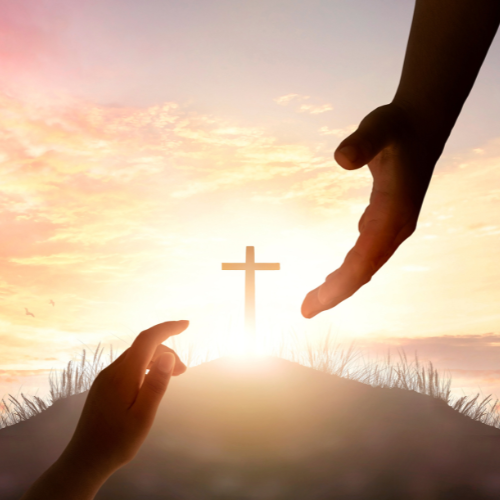Reformation Today
- Gethsemane Lutheran Church
- Oct 25, 2025
- 6 min read

There’s a beautiful quote by Martin Luther:
“This life therefore is not righteousness but growth in righteousness, not health but healing, not being but becoming, not rest but exercise. We are not yet what we shall be, but we are growing toward it, the process is not yet finished, but it is going on, this is not the end, but it is the road. All does not yet gleam in glory, but all is being purified.”
This quote is not, by the way, found in the 95 Theses. I thought this quote must come from the work he did later in his life, but no—it comes from “Defense and Explanation of All the Articles,” which was written in response to the Papal Bull “Exsurge Domine” where the Pope wrote “rise up O Lord…for a boar from the forest is trampling your vineyard.”
That papal bull listed 41 statements of Luther for explicit condemnation and ordered him to recant or be condemned. So like the detail-oriented professor that he was, Luther responded to each one. And among the things he wrote in that “Defense and Explanation of All the Articles”, he mentioned this:
“God never made prophets out of the high priests or others of lofty station, but usually [God] raised up lowly and despised persons…The dear saints have always had to preach against and chide those in high places, to rebuke kings, princes, priests, and scholars, and to risk and sometimes lose their necks. …In those days, too, the bigwigs gave the holy prophets no other answer than to say ‘We are the authorities and you must obey us and not those lowly and despised prophets.’ …Today they act the same way.”
Luther could have written that yesterday and it is still relevant. I tell you this because faith and politics are always wrapped up in each other. It would be irresponsible to suggest otherwise. And faith and politics are not the same thing as what our government calls “church and state.”
Martin Luther was always part of the clergy and part of academic life; he wasn’t elected to anything, but he had lots of thoughts about what elected leaders should do, because he followed Jesus. If we remain silent on issues that affect our neighbors, we are saying that we are just fine with the status quo. And we are not fine with the status quo. Not as long as our neighbors are facing food insecurity and increasing hunger. We’re not fine with our neighbors who are immigrants and migrants are being targeted and persecuted and deported without due process. We’re not fine with the levels of wealth inequality.
This doesn’t mean the people who are fine with the status quo become our enemies. Listen folks, we ain’t got time for enemies. The team we’re rooting for is the kin-dom of God—the kin-dom of God is our partisan loyalty.
Partisan speech is what favors one or another political position, and we should be partisan—we should be in favor of whatever policy cares for the most vulnerable people. It is vital to note: this does not align perfectly with any political party of our nation or any nation. God is a not a Democrat, nor a Republican, nor Communist, nor Socialist, nor anything else.
There are people who follow Jesus who live under all sorts of forms of government, in China, in the Occupied Territories of Palestine, in Russia—and all of these believers follow Jesus in the best way they know how to do. The same goes for us—we follow Jesus, regardless of what our system of government is, and if we have rights and privileges that we can utilize on behalf of the most vulnerable, then because we follow Jesus, that’s what we should do. We’re here to speak up for the vulnerable, as long as we can, with whatever means we can.
Did you know that at the most recent ELCA Churchwide Assembly, on August 1st, the ELCA adopted a brand-new social statement called “Faith and Civic Life: Seeking the Well-Being of All.” This social statement is grounded in our faith, which for Lutherans is God’s Word which we know through the Bible, and this ELCA Social Statement goes into depth about how we, as Lutherans in the United States, are to engage publicly and politically as a matter of our faith.
This statement is so new that it isn’t even yet published in its final form with all the amendments that were also voted on, but there is a summary available with these exciting tidbits: one section of this social statement “gives a principled assessment of the U.S. Constitution, which is a rare investigation from a principled and nuanced stance of faith.” And another section “delineates this church’s view on the meaning of the First Amendment from the standpoint of faith…It also describes the distinction between religious liberty (a civic matter) and Christian freedom (a matter of faith).” I love it! I can’t wait to discuss this with you, all 53 pages of theological wisdom.
We have to get over this fear of speaking about politics, and we have to get over this fear of mixing faith and politics. How will we ever do that if we don’t practice speaking? We’re not gonna get it right all the time.
Last week, one of our congregational leaders, spoke about a signature drive to petition against gerrymandering our communities to favor a political party. He spoke passionately because he cares, and he also spoke with disregard for the dignity of some of our elected leaders. So guess what we did? We talked to each other. The council happened to have their regular monthly meeting this week, so we talked about this, about how we can root our political action in our faith.
And for my own response, I determined that for each political leader named dismissively, I’ll be lifting their names in prayer today. This is technically part of the prayers of intercession every week; we always pray for the nations, for leaders of nations and leaders within nations. Wherever a person is invested with responsibility for other people, we pray for God’s guidance for that person, always with the hope that they will use their authority for the good of the most vulnerable people.
Now, you might be asking, WHAT does ALL THIS have to do with the GOSPEL? The GOOD news? Jesus says, “If you continue in my word, you are truly my disciples, and you will know the truth, and the truth will make you free.”
Friends, we are here for freedom. If you want a religion where you can escape the world, I would say that doesn’t sound like freedom to me, and that doesn’t sound remotely like a religion of following Jesus. If you are content to languish in hopelessness, well, you’re not really free. If you let yourself be silenced by fear, you are not free.
We come here to gather for worship to be set free by God who IS above all of this mess that humans have made on earth. God is higher than anything being torn down. God is more present that whatever is being chewed up from the inside. God is more real than anything you can find on social media.
We follow a savior, Jesus Christ, whose love for all humanity and all creation led him all the way to the cross. So let’s have a Reformation Sunday pop quiz. You’re all back in confirmation class now.
Here, I’ll give you multiple choice so listen closely: when Jesus sat face-to-face with the man, Judas, who would betray him and ultimately lead to Jesus’s death, what did Jesus do?
Gave him a lecture about how wrong he was.
Slapped his face.
Loudly called out Judas’s behavior and publicly shamed him.
Armored up with weapons for the inevitable showdown. OR
Took bread, blessed and broke it, and FED HIM while saying the words, “Take this and eat; this is my body given for you.”
Judas was gonna do whatever Judas was gonna do, and that still did not change who Jesus is. Jesus fed others because of who JESUS is, not because of who THEY are nor because of what THEY have done. That’s how powerful is God’s grace—given freely to the utterly undeserving, because of who God is, because this is what God chooses.
You will be invited forward in a few minutes to receive the bread and wine, fed by the Body and Blood of Jesus Christ. I’ll re-tell the story of the Last Supper, same as we do just about every week. (Last week was a rare exception when we didn’t have Holy Communion, because I was out of town and I couldn’t find anyone else who is ordained who could preside at Communion.)
I treasure the privilege of presiding at Holy Communion, speaking the words that call us back to memory, and sharing the bread that feeds our bodies and our souls. Jesus is always the host, and I receive the bread too, as if from the hand of Jesus, who says to me the same as to everybody and to you as well: “This is my body, given for you.” I’m going to mess things up sometimes, and in my humanness I’ll deny Jesus because I’m scared of the consequences.
But Jesus will keep offering his body and his blood, Jesus will keep forgiving sins, and Jesus will keep offering the grace that saves. As Luther said, “We are not yet what we shall be, but we are growing toward it, the process is not yet finished, but it is going on, this is not the end, but it is the road.”
Amen.
Pastor Cheryl
.png)





Comments